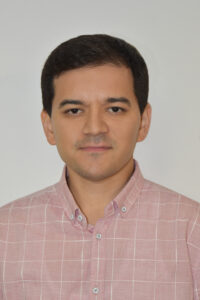Meet Our Wadsworth International Fellows: Dilmurad Yusupov
 Dilmurad Yusupov received his undergraduate degree from the Moscow State Institute of International Relations (MGIMO University), Russia and an MA in Economics at the Graduate School of Economics, Waseda University, Japan. Thanks to the Wadsworth International Fellowship he will continue his training with a PhD in anthropology at the University of Sussex, Brighton, United Kingdom, supervised by Dr. Magnus Marsden.
Dilmurad Yusupov received his undergraduate degree from the Moscow State Institute of International Relations (MGIMO University), Russia and an MA in Economics at the Graduate School of Economics, Waseda University, Japan. Thanks to the Wadsworth International Fellowship he will continue his training with a PhD in anthropology at the University of Sussex, Brighton, United Kingdom, supervised by Dr. Magnus Marsden.
My research project deals with disability in Uzbekistan, where it is conflated with physical dysfunction caused by various impairments and state efforts are directed towards returning disabled people to ‘normal’ condition through medical rehabilitation. Current practices have been largely influenced by Soviet disability policies based on institutionalization and segregation. The purpose of my study is to explore the potential that community-based approaches hold for promoting inclusive development as an alternative to placing disabled people into specialized care institutions.
Through an approach based on participatory action research with adults with physical, sensory and learning impairments and critical ethnography, my goal is to understand how Soviet disability policies and practices, Islamic culture in post-Soviet Uzbekistan and related cultural stereotypes about disabled people shape current understandings of disability. I am also deeply interested in learning how existing formal/ informal community networks in Uzbekistan promote or prevent social inclusion of disabled people.
As an economist by training, I used to practice quantitative research and hold a positivist worldview. But after working with disabled people at grassroots levels on various projects implemented by Japanese international organizations in Uzbekistan, I gained an understanding of how economics, with its numerous assumptions about human lives and focus on numbers, can produce a distorted reality. This prompted me to undertake a PhD at the Institute of Development Studies, University of Sussex where I could receive postgraduate training in anthropology and participatory research methods.
Drawing on social and medical anthropology, my research project adopts a constructivist paradigm. After completing a comprehensive literature review on relevant research approaches and methods, I have embraced critical ethnography and view disability not as a medical but as a culturally and socially constructed concept. In Uzbekistan, anthropological education and research is heavily underrepresented and its potential is underestimated. Therefore, through this research and world-class training in anthropology, I aim to contribute to national academia and advance applied anthropology as a means to promote social development in Uzbekistan.